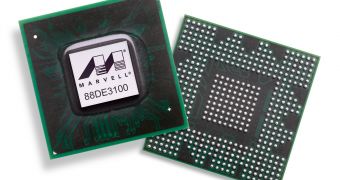Elbrus Technologies, an American company founded by a Russian software development team has announced that they are working on a special x86 on ARM emulator that will allow existing Windows software to run on ARM servers and computers without any need to modify, optimize or recode the used program.
Porting programs is a really complex operation and the results obtained are often less than perfect as the program can be made compatible with a different hardware architecture, but the same performance is rarely achieved.
An improvement of performance is even less common.
What Elbrus Technologies is currently offering is an emulator that will run any of your x86 applications on an ARM computer with roughly 40% of the performance you’ll get from a completely ARM optimized version of that software.
Porting and optimizing software is a costly and complicated affair.
Once an x86 software is deemed essential and porting is the chosen method of action, you’ll likely have to wait weeks if not months for your software team to recode and optimize the application only to find out that you’re only getting 60% of the performance your x86 server was able give you.
The main issue is that you’re waiting for your much-needed software tool to become available and you’re also paying a whole team for thousands of work hours to recode your software.
All these costs are really not desirable especially when the end performance is lower so, when a company offers you a simple emulator that will run your software on ARM today with no recoding or optimization needed, you’ll most certainly be interested.
So what if the performance is only 40% and a properly ported application would have offered more performance. The emulator makes the solution available today with no extra costs except the cost for the emulating program.
Elbrus Technologies might also be considering the superior performance per watt that ARM offers. If that advantage usually ranges between 50% and 90% in certain scenarios, a 50% efficient emulator will likely halve that performance per watt advantage, but the ARM hardware will still have the upper hand.
Anatoly Konukhov, member of the Elbrus Technologies team and former team leader at Parallels commented on the new software technologies as follows:
"Currently, we are creating a binary translator which allows us to run applications. Implementation of an optimization process will start in parallel later this year - we are expecting both parts be ready in the end of 2014. The major concern for us is lack of software developers with binary translation expertise. This is also the reason for us to estimate project release in late 2014."
Therefore, in two years, we might all be running x86 legacy software on our octal-core ARM computers and enjoying the advantages of a lower price and a higher efficiency.
The reality will likely be different, but 80% efficient x86 on ARM emulation is something to desire especially in the server world.

 14 DAY TRIAL //
14 DAY TRIAL //